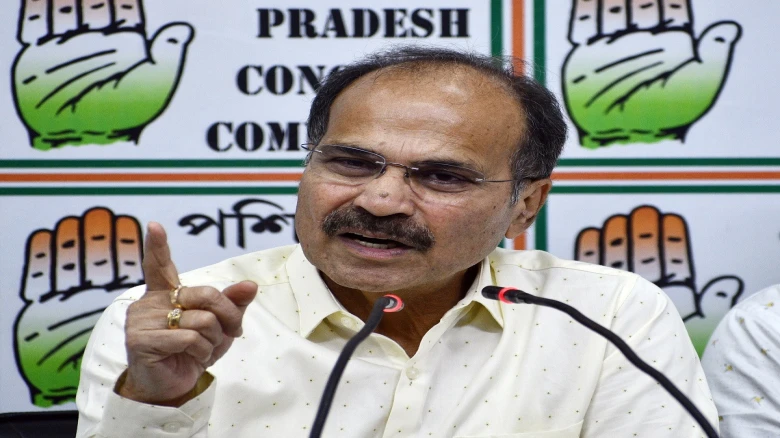Regional

Chowdhury's fiery campaign rhetoric, including pledges to leave politics or even sell nuts if defeated, underscores the intensity of this electoral battle
Digital Desk: In the forthcoming phase of Lok Sabha elections, Baharampur emerges as the focal point, determining not only the trajectory of senior Congress leader Adhir Ranjan Chowdhury's political journey but also setting the tone for electoral dynamics in West Bengal, particularly among the Muslim community.
Representing Bengal's oldest Congress bastion, Chowdhury, a steadfast loyalist to the Gandhi family, faces a pivotal moment in his five-term tenure since 1999. The Baharampur constituency, nestled near the Bangladesh border, holds a Muslim-majority demographic, shaping its political landscape significantly.
Chowdhury's fiery campaign rhetoric, including pledges to leave politics or even sell nuts if defeated, underscores the intensity of this electoral battle. He says, “I will sell Badam if I lose”, “I will quit politics if I lose.” Baharampur, historically a stronghold of the Revolutionary Socialist Party until Chowdhury's breakthrough win, now stands as the Congress's last bastion in the state's Lok Sabha elections.
However, recent electoral trends signal a challenging landscape for Congress. The party's dwindling influence, exemplified by successive losses in previous polls, reflects broader shifts in West Bengal's political tapestry. Amidst this, the Muslim vote, once a stronghold for Congress, now appears fragmented, with Mamata Banerjee's Trinamool Congress emerging as a dominant force post-CAA protests.
The contest in Baharampur manifests as a bipolar duel between the Trinamool Congress and the Grand Old Party, symbolising a tug-of-war for political ascendancy. Banerjee's strategic nomination of Yusuf Pathan in Baharampur injects fresh dynamics into the electoral calculus, posing a formidable challenge to Chowdhury's entrenched position.
Despite Chowdhury's enduring popularity and accessibility, the ground realities reflect a nuanced narrative. While sentiments of support persist, there's a palpable shift towards the Trinamool Congress, fueled by pragmatic concerns over survival and disillusionment with traditional political affiliations. Banerjee's populist schemes and perceived ability to safeguard against the BJP's incursion resonate strongly, overshadowing concerns of corruption.
Against the backdrop of communal tensions and socio-economic complexities, Baharampur stands at a crossroads of larger political transitions in West Bengal. As voters navigate through polarised sentiments and pragmatic considerations, the outcome of this electoral showdown holds ramifications far beyond the confines of Baharampur, shaping the contours of Bengal's political landscape.
Leave A Comment